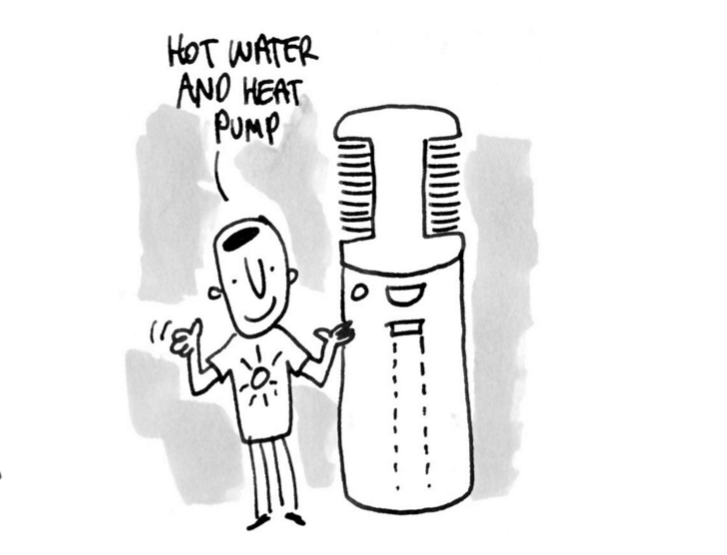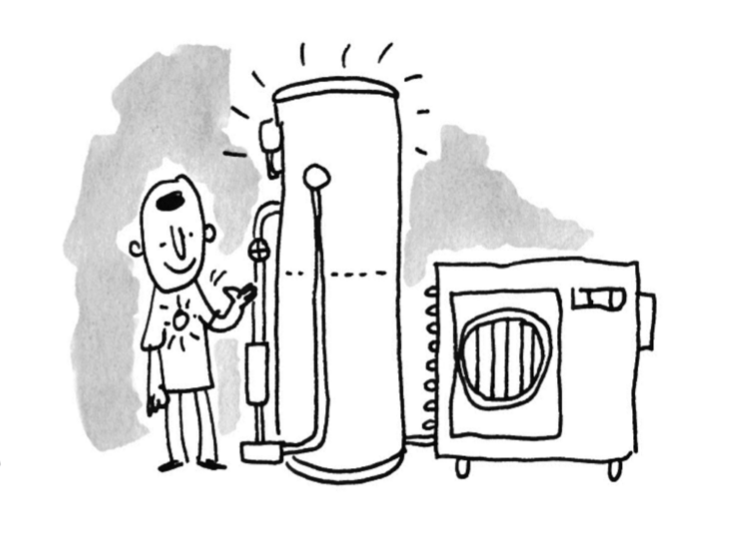18 Aug. 23
Solar vs. Electric Water Heaters: Which is More Cost-Effective?
As energy costs continue to rise, many homeowners in Sydney are re-evaluating their home heating solutions. The decision often boils down to solar and electric water heaters, with cost-effectiveness being a significant deciding factor. This article will compare the two based on upfront costs, ongoing operating costs, environmental impact, and lifespan, providing a comprehensive insight into their cost-effectiveness.
Upfront Costs
Electric water heaters are generally less expensive to purchase and install than solar systems. An average electric storage water heater can cost between $300 to $1500, while installation costs typically range between $300 to $700.
On the other hand, solar hot water systems have higher upfront costs, ranging from $2000 to $7000, depending on the type of system (flat panel or evacuated tube), size, and brand. The installation of solar systems can also be more complicated, adding to the initial cost.
Opting for an energy-efficient water heater like electric ones may seem cost-effective upfront, yet hidden expenses like electrical upgrades in older homes can inflate your initial investment.

Operating Costs
While electric heaters are cheaper initially, their running costs can be much higher. These systems rely solely on grid electricity, which in Sydney, as of 2023, is around 28 cents per kWh. Moreover, peak electric rates can significantly increase operating costs. According to the Australian Energy Regulator, water heating accounts for about 25% of household energy use. With electric water heaters, this can translate to hundreds of dollars each year.
Solar hot water systems, however, harness the abundant sunlight that Sydney enjoys throughout the year. The Clean Energy Council reports that a solar water heater can provide between 50% to 90% of your hot water needs, depending on your location and the system size. The remaining hot water requirement would typically be met by a booster system, which may be electric or gas.
While solar systems have higher upfront costs, they can be viewed as an investment rather than an expense. The potential energy savings can offset the initial cost over time. According to Energy Rating, an initiative by the Australian Government, a solar water heater could save up to $500 per year on electricity bills in Sydney, depending on the size and type of system, and the household’s hot water usage.
Learn more about Is Solar Hot Water Worth the Investment? A Detailed Breakdown
Lifespan
Most electric water heaters have a lifespan of around 10 to 15 years, while solar hot water systems can last up to 20 years or more with proper maintenance. The longer lifespan of solar systems can contribute significantly to their cost-effectiveness. However, it’s essential to consider potential maintenance and repair costs over this extended period. Regular maintenance can help to maximize the system’s lifespan and efficiency.
Environmental Impact
While not directly related to monetary cost-effectiveness, the environmental impact of your heating system is an essential factor to consider. Solar hot water systems generate significantly lower greenhouse gas emissions compared to electric water heaters. This can result in indirect cost savings through government incentives aimed at reducing emissions, such as Small-scale Technology Certificates (STCs) under the Small-scale Renewable Energy Scheme (SRES).
The Australian Government’s STCs can significantly reduce the upfront cost of solar hot water systems. Each STC represents a tonne of carbon dioxide emissions avoided over the system’s deemed life (10 years). The number of STCs you can earn depends on the system’s size, the amount of solar energy in your location, and other factors.

Solar hot water systems can significantly reduce household greenhouse gas emissions. According to the Australian Government, a four-person household using an electric water heater can produce around 3 tons of CO2 per year. Switching to solar can reduce this by up to 2.7 tons – the equivalent of taking a small car off the road for a year!
When considering cost-effectiveness, both solar and electric water heaters have their strengths. Electric heaters win on upfront costs, but their high operating costs can make them more expensive in the long run.
Solar hot water systems require a larger initial investment but offer significant savings on operating costs and have a longer lifespan. When factoring in the potential environmental benefits and government incentives, solar hot water systems can prove to be a more cost-effective option in the long run.
Thus, while both options have their merits, if you’re looking for long-term cost-effectiveness, sustainability, and resilience against rising energy costs, a solar hot water system is worth considering.


